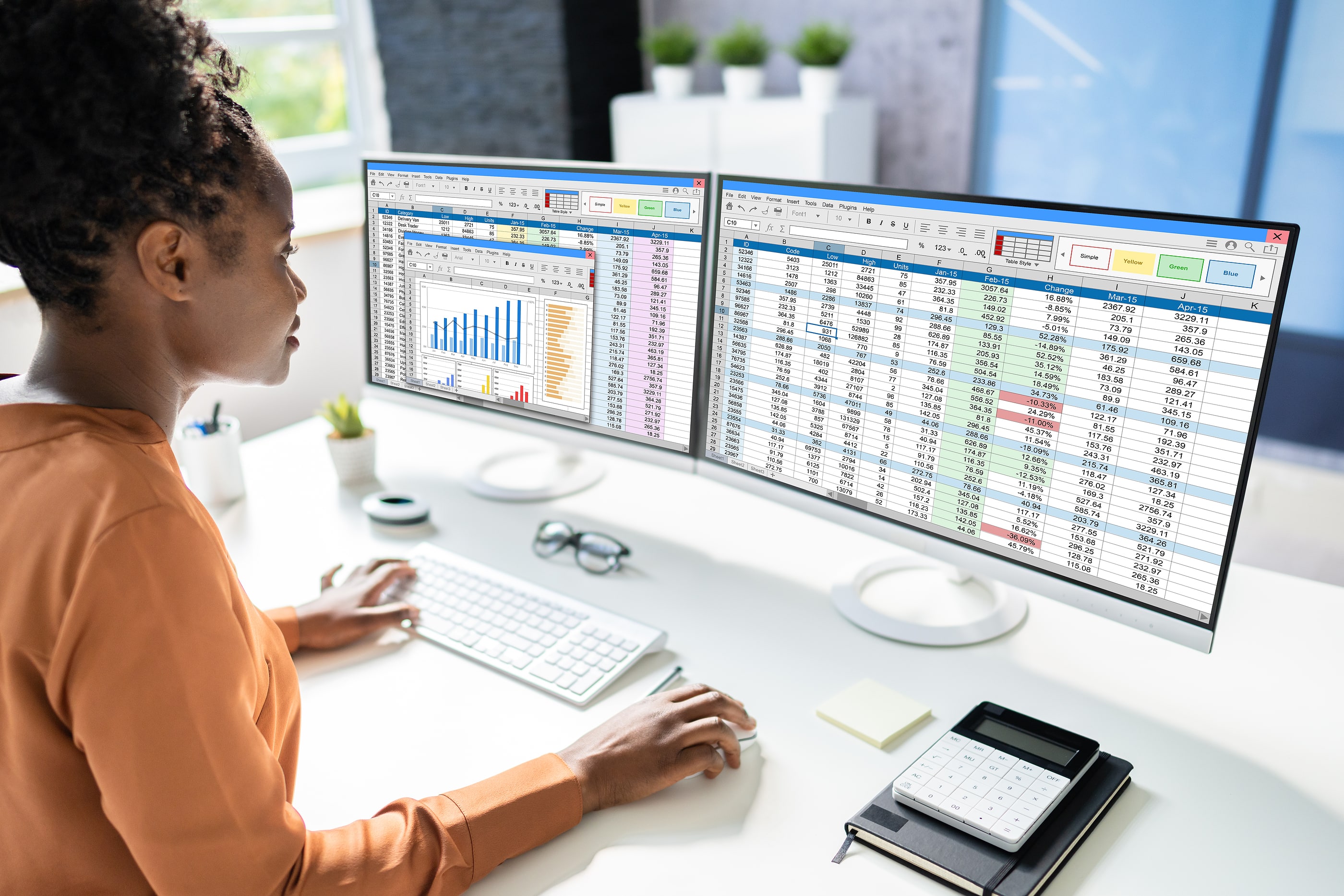Crucial Data Analyst Skills for 2023 and Beyond
As a specialist tech recruitment agency, we can tell you more about the most important data analyst skills to have in the current and future job market.
What skills are required for a data analyst position?
A career in data analytics or analysis requires a wide range of both hard and soft skills. Hard skills, or technical skills, are the measurable abilities or sets of knowledge that come through experience or education. Soft skills, or professional skills, are abilities associated with an individual’s personality and how they relate to others.
Both hard and soft skills are important when working as a data analyst, though some organisations may favour certain skills over others.
The essential hard skills for a data analyst
Naturally, most of the work a data analyst does from day to day will be concerned with data. An individual in this role will use technical tools to sort through large quantities of raw data and develop meaningful insights. They will also normally be required to remove corrupt data, determine data quality, and prepare reports for the organisation’s employers and management.
All of these tasks require hard skills in which technical proficiency is key. Some of the most important skills to have before becoming a data analyst are:

1) Data visualisation
This is an individual’s ability to present data findings via carefully-created graphics or illustrations. These graphics and illustrations are vitally important for clarifying patterns and data trends, as most people are likely to understand them even if they haven’t been trained in data analysis. Data visualisation is therefore key for helping the organisation’s decision-makers.
Having this skill helps an individual data analyst to gain a better understanding of where their organisation stands, while also conveying useful information to team leaders. A 2019 study by LinkedIn Learning found that recent graduates are much more likely to learn hard skills based on analysing data and telling stories with insights taken from said data.
2) Data analysis and exploration
In essence, the process of data analysis involves taking a question or need and analysing the relevant data in order to develop an answer or solution.
Another form of data analysis is data exploration. This is the process of looking for interesting trends or relationships in data that could result in added value for an organisation by finding opportunities to reduce costs or increase growth.
3) Data cleaning and preparation
Data cleaning and preparation is a core skill for any data analyst job. Research from a study conducted in 2016 even found that cleaning and preparation is about 80% of the work for most data professionals. It’s critical for assembling a functional machine learning model because a properly-cleaned dataset can generate remarkable insights – even if the algorithm itself is not complex.
Conversely, uncleaned data can produce misleading results, prompting decision-makers to come to wrong conclusions and harm organisations.
4) Maths and statistical knowledge
Maths, probability, and statistics are all important skills when you work with data. This is because it guides data analysis and exploration and helps an individual to decipher the data in order to identify patterns. Understanding statistics also helps to ensure that the analysis carried out is valid, helping to avoid common errors.
The exact amount of maths and statistical knowledge an individual will need will vary, depending on the needs of the organisation, the role itself, and the data they are working with. For example, if the business relies on probabilistic analysis, you will need a much greater level of understanding than would otherwise be needed.
5) Linear algebra and calculus
Two particular fields of mathematical study are required: linear algebra and calculus. The former has applications in machine and deep learning, where it supports vector, matrix, and tensor operations. The latter is used to build the objective/cost/loss functions that teach algorithms to achieve their objectives
6) Programming languages and database languages
There are several programming languages and database languages to learn before becoming a data analyst:
- Python; this is a top priority for individuals wishing to become data analysts. This programming language offers a large number of specialised libraries, many of which are focused specifically on artificial intelligence (AI). Its applicability to AI development is particularly important, as the AI market is only forecasted for continual growth.
- R; the syntax and structure of R were created to support analytical work. It encompasses several built-in, easy-to-use data organisation commands by default. It’s particularly appealing to organisations because it can handle large quantities of data, as well as complex data.
- MATLAB; this is a multi-paradigm numerical computing environment that supports algorithm implementation, matrix manipulations, and data plotting. Organisations interested in big data use MATLAB because it allows a cut down on pre-processing data time. It also facilitates quick data cleaning, organisation, and visualisation.
- SQL and NoSQL; from these, Structured Query Language (SQL) is the main means by which data is queried and handled in relational databases. It is also important to develop your skills with NoSQL databases, as these don’t organise data sets along SQL’s relational lines.
7) Machine learning
Machine learning is not considered a skill in the same way as learning a programming language or data cleaning and preparation. However, it is still a key element for becoming a stellar candidate in the competitive field of data analysis and analytics. Research has indicated that AI and predictive analytics are currently areas of significant investment, so understanding machine learning is likely to put an individual ahead of other prospective employees.
8) Microsoft Excel
It is estimated that around 1.1 billion people use Microsoft, and at least half a billion of those people use Microsoft Excel. Microsoft Excel is fantastic at automating particular features and commands for better data analysis. It also has its own programming language, VBA, which can be used to create macros or pre-recorded commands.
When deployed correctly, VBA can save data analysts time on repetitive tasks like project management, accounting, and payroll.
The essential soft skills for a data analyst
Technical skills alone will not be enough to turn an individual into the ideal candidate for a job. There are also a set of soft skills that employers will look for, three of the most important of which we have discussed here:

1) Critical thinking skills
An individual has to be able to understand the data being analysed, and to expand its implications beyond the numbers shown. Critical thinkers will be able to think about the data analytically, identifying patterns and extracting actionable insights and information.
2) Problem solving skills
Being able to solve frequently-faced problems is an extremely valuable and important skill valued by employers.
3) Communication skills
All data analysts will need to be able to explain their findings to others – those who understand data analysis and analytics and those who don’t. An individual should be able to address highly complex and technical points with peers in their profession, while also being able to provide clear, straightforward explanations to the organisation’s decision-makers.
Work with us on Technology
If you’re interested in becoming a data analyst and possess the skills listed above, or if you need a talented individual to fill a data analyst position within your organisation, contact us. Oakleaf Technology, Change, and Transformation’s Technology Division is perfectly positioned to work cross-sector in a range of disciplines. Get in touch with our team or send us your CV to get started and work with specialist recruiters to find your ideal working solution in data.